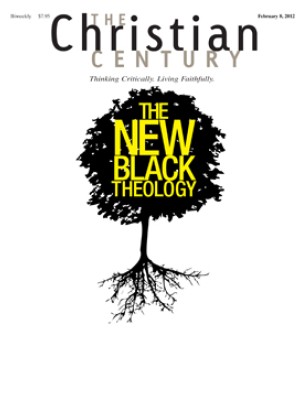The Interrupters: Directed by Steve James
The Chicago-based documentarian Steve James isn't a great filmmaker, but he has a journalist's nose for a great story. His beat is the challenges faced by low-income city kids: the teens in Hoop Dreams who are hopeful that basketball will be their ticket to a better life; the young Chicagoans in The Interrupters, his latest, whose lives are blighted by the cycle of violence.
The subject of The Interrupters is a program called CeaseFire: Violence Interrupters. CeaseFire attempts to intervene before one violent act provokes another and to help young people get off the wrong track. What the group is fighting against is staggering: generations of poverty and crime, the machismo and the fear of appearing weak that come with gang violence, the mind-set that history and survival justify retribution.
Read our latest issue or browse back issues.
Most disturbing of all is the fatalism that CeaseFire encounters. On a memorial wall dedicated to recent shooting victims, someone has scribbled, "I am next." In one of the film's most powerful sequences, funeral home director Spencer Leak reports that the young people who attend the funerals of their friends and relatives appear to be checking them out, as if attending a dress rehearsal for their own funeral.
What the Violence Interrupters have going for them is that their own lives once seemed as hopeless as those of the people they're trying to help. Tio Hardiman, the organization's cofounder, used to be a street hustler. Cobe Williams served 12 years for drug trafficking. Ameena Matthews, abused from age nine, was the only girl in an Englewood gang. Eddie Bocanegra went to jail for a revenge killing.
Yet each of them managed to turn away from a devouring past. Their street cred and their empathy often make it possible for them to get a hearing. And they're fearless: attending a vigil for a boy shot in front of his apartment, where he was simply listening to his radio, Ameena lectures the teenagers to get the idea of vengeance out of their heads. Pointing to a kid of maybe 12, hanging out with the older boys, she insists that they "teach him righteous."
Ameena is the most memorable of the crew. A ferocious and sensitive Muslim woman, she balances the care of her own kids with the hours she spends working for CeaseFire and playing big sister to a troubled 18-year-old woman. But each Interrupter's emotional commitment catches you up. The people they try to help are equally compelling: Latoya Oliver, who wants someone to save her two sons; a furious druggie known as Flamo who, little by little, starts to get both his anger and his addiction in check; Li'l Mikey Davis, a 17-year-old who comes home from jail and apologizes to the people he wronged.
The movie's year-in-the-life-of-the-city structure makes it meandering and repetitive. But it's full of people you wouldn't want to miss getting to know. Spencer Leak fought for civil rights in the '60s, and he talks about what it felt like for an African American of his generation to see Obama elected. "But while I'm seeing the president of the United States on TV," he tells the camera, "I'm still burying black kids. It just doesn't make sense to me." Leak's mournful bafflement echoes through the rest of this poignant movie.






